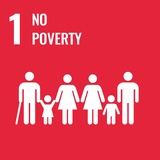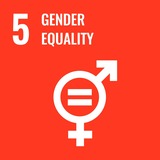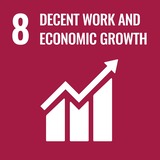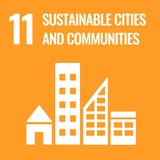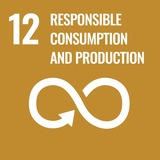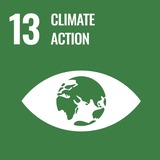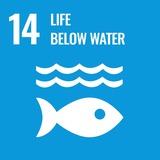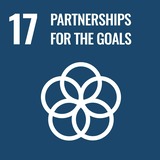Clean Dar es Salaam protects our oceans from plastic waste
Dar es Salaam, Tanzania
1,000 tonnes / year
Our story
Who is The Recycler?
The Recycler started operations in Dar es Salaam - Tanzania in 2014. Dar es Salaam, Africa’s third fastest-growing city, has a serious waste problem. Situated on the shores of the Indian Ocean, the city has all the potential to be one of the most beautiful in the world. Instead, it has been ranked as one of the world’s filthiest. Around 4,500 tonnes of waste are generated every day with a modicum of recycling and only 40% are being managed and dumped legally at the local dumpsite. The remaining 60% is either burned or illegally dumped into rivers or the ocean causing a variety of health, economic and social-related consequences.

What does The Recycler do?
The Recycler offers waste management and recycling solutions for all waste streams in Tanzania. The company started by developing local and international markets for recyclable material and specializing in separating waste to process and trade. The company set up recycling collection points throughout the city, worked with the largest waste producers, and teamed up with informal collection networks. They are able to recycle paper, glass, cans, and many different types of plastic – recycling over 200 tons per month with over 40 full-time employees. The Recycler then began to identify waste materials that did not have a market in Tanzania and started projects to find sustainable solutions to these materials. The first was organic waste, which makes up around 30% of all waste in Dar es Salaam. The Recycler spun off a company called Biobuu that uses insects to eat organic waste and make insect-derived protein and compost.

What project did The Recycler develop with CleanHub?
While The Recycler make every effort to find recycling outlets for material and push for systematic redesigns in packaging, there are still large amounts of plastic material that is not recyclable locally or even internationally. This is the majority of the waste that ends up in the rivers, forests, and the ocean whereas recycling material is picked out by informal collectors. The Recycler’s mission is to get to Zero Waste to landfill in Tanzania. Zero Waste to landfill is a practical solution that means all waste is recycled, composted, or used for energy recovery so that nothing is taken to landfill. Our company is pushing to reach these goals by increasing the value of recycling material and seeking new markets for non-recyclable waste. It is also part of our mission to create sustainable jobs for low-income locals. We believe in an approach that distributes the value of waste to the lowest income bracket through decentralized value creation and collection. Working with CleanHub, the Recycler can put a value on non-recyclable plastic material that would otherwise have ended up in the waterways, burnt, or at the landfill. This creates an additional income for informal recyclers who can now diversify from collecting only recyclable material, to also collecting non-recyclable plastic that is used locally as an alternative fuel. CleanHub subsidizes the non-recyclable plastic material allowing The Recycler to purchase it from informal recyclers at fair prices. Moreover, The Recycler has teamed up with a multiplicity of community- led organizations doing beach clean-ups and assisting in taking non-recyclable plastic out of the environment permanently.

How do brands that partner with The Recycler support the project?
Every kilogram of plastic that gets collected in a brand's name, means one kilogram of waste taken out of the environment in Tanzania. Brands' funding will also be a support to the informal recyclers in the form of diversified income to collect the non-recyclable material. There are over 1,000 informal waste pickers in Dar es Salaam who collect recyclable material - by giving non-recyclable plastic value, these people will be able to increase their income on a steady basis.

The process
"Dar es Salaam is one of the fastest-growing cities on track to be the third-largest city in the history of the world by 2100. Creative Waste Management solutions are needed to leapfrog the city into sustainable job creation and environmental management. Together with CleanHub, We are pushing for zero-waste-to-landfill."
Clean Dar es Salaam
Matthew Haden • Managing DirectorMaximise impact
We believe that in order to maximize our positive impact on the environment and communities, we must target the lowest-value waste materials that currently have little to no market. To that end, we are committed to investing in innovative technologies and processes that allow us to efficiently and effectively recycle these materials. In addition, we work with local governments and community groups to develop and implement initiatives that promote waste reduction and recycling, and we regularly review and assess our practices to ensure that we are making the greatest possible contribution to a more sustainable future. We hope to inspire others to join us in this effort.
Empower local communities
We are committed to distributing the value of waste to the lowest income bracket through decentralized value creation and collection, while also incorporating informal waste pickers into the value chain. We work with local partners to promote waste reduction and recycling, provide resources and education, collaborate with local businesses, engage in transparent communication, and support local capacity building. By doing so, we hope to empower communities to take ownership of their environmental impact and play a leading role in sustainability efforts.
Reduce & recover
Our mission is to get to zero -waste-to-landfill in countries across Africa. Zero-waste-to-landfill is a practical solution that means all waste is recycled, composted/turned into biogas, or used for energy recovery so that nothing is taken to landfill. We also believe in the Zero Waste Movement, known as the systematic redesign of all resource's life cycles so that waste is not produced at all. Our company is pushing to reach these goals by increasing the value of recycling material and seeking new markets for non-recyclable waste.
Do no harm
We are committed to upholding the highest standards of environmental responsibility and ethical conduct. Our 'do no harm' policy requires that all of our actions and decisions be guided by a deep respect for the well-being of people and the planet. This means that we always strive to minimize any negative impact on the environment and work to ensure that our operations do not cause harm to individuals, communities, or ecosystems. We believe that by following this principle, we can contribute to a more sustainable and healthy future for all.
Set high standards
We are committed to operating in an environmentally responsible and ethical manner. We follow all relevant laws and regulations, continuously improve our environmental performance, educate our stakeholders about sustainability, be transparent about our practices, and partner with like-minded organizations. We aim to set a high standard in the recycling industry and inspire others to join us in creating a better future.
FAQs
CleanHub empowers companies to take immediate responsibility for their plastic footprints. We connect ocean-loving brands with local communities, and facilitate the collection and safe processing of non-recyclable plastic. We understand the importance of proving impact, so we’ve built track & trace technology to provide evidence of how much plastic is collected, and where it ends up after we take care of it.
We choose recovery methods with the lowest environmental impact possible, and use our market position to enforce better working conditions for local workers.
80% of the plastic waste that ends up in the oceans is so-called flexible packaging or multilayer packaging, like chip packets, sauce sachets, etc. This material is either impossible to recycle or there is no demand from the market for the products (unlike water bottles which are commonly collected as they can be recycled, and so have ‘value’). Plastic that can’t be recycled is openly burned in small backyard fires or in landfills, or it is carried away into nature by the monsoon or strong winds. While we do collect all plastics, we focus on non-recyclable plastic to maximize our impact.
In order to stop ocean bound plastic, we need to significantly increase plastic recovery rates in high leakage locations. To achieve that, we empower communities around the world to cope with their own plastic waste, create incentives, develop waste management standards and foster local entrepreneurship. In our network of recovery endpoints we provide critical off-take agreements to safely treat plastic waste.
Plastic pollution is a global problem that affects us all. CleanHub is building a global network of local Collection Hubs in high impact locations to facilitate the collection and safe processing of non-recyclable plastic. We operate primarily in South (East) Asia which is the gateway for more than 80% of all plastic that enters our oceans. With your contribution we can reduce the mismanagement of plastic waste in these regions to eventually stop this environmental crisis.
Recyclable goods are sold for local recycling. Non-recyclables are sent for co-processing.
Co-processing refers to the simultaneous recycling of mineral materials and recovery of energy in the process of cement manufacturing and achieves a superior environmental performance as compared to landfill and incineration. For co-processing recovery we partner with Geocycle.
To learn more, read our blog - What happens to the collected waste
Plastic neutrality means that for every amount of plastic created, an equal amount of plastic waste is retrieved from the environment to be appropriately disposed of - either recycled or repurposed.
We work with brands to calculate their plastic footprint and recover the equivalent amount from the environment in high leakage countries, such as Indonesia or India. Some brands want to go further and recover more plastic than they emit, earning them Plastic Neutral + status. . Every contribution directly prevents plastic from entering our oceans and supports the development of local waste management infrastructure.
To stop plastic from entering the environment, we need to get to a point where the material is collected as close to the consumer as possible, and intercepted before it can reach the ocean. The majority of our plastic efforts are door-to-door collection or other smart ways to aggregate waste in one point. We also finance projects with passive technologies that catch plastic in rivers. The smallest fraction of plastic stems from beach cleanups or is directly sourced from the ocean.
Recovering plastic from the environment involves three distinct operations. Firstly the collection of the plastic, secondly the sorting of plastic into its unique types and thirdly the safe and final treatment. We digitize the recovery of ocean bound plastic from start to finish.Our Hubs use our technology to track the full collection process, which means we can verify every piece of plastic that is collected and what happens to it after we take care of it.
Watch this video to see how it works
We choose the best recovery method according to three steps. Firstly, available recovery options are ranked according to the waste management hierarchy, i.e. Recycling > Energy Recovery > Landfill. Secondly, we rank all options on the basis of life-cycle assessment results that determine related Co2 emissions. Thirdly, all recovery options are ranked by their level of technology and safety. CleanHub only works with recovery companies that operate according to the European code of conduct.
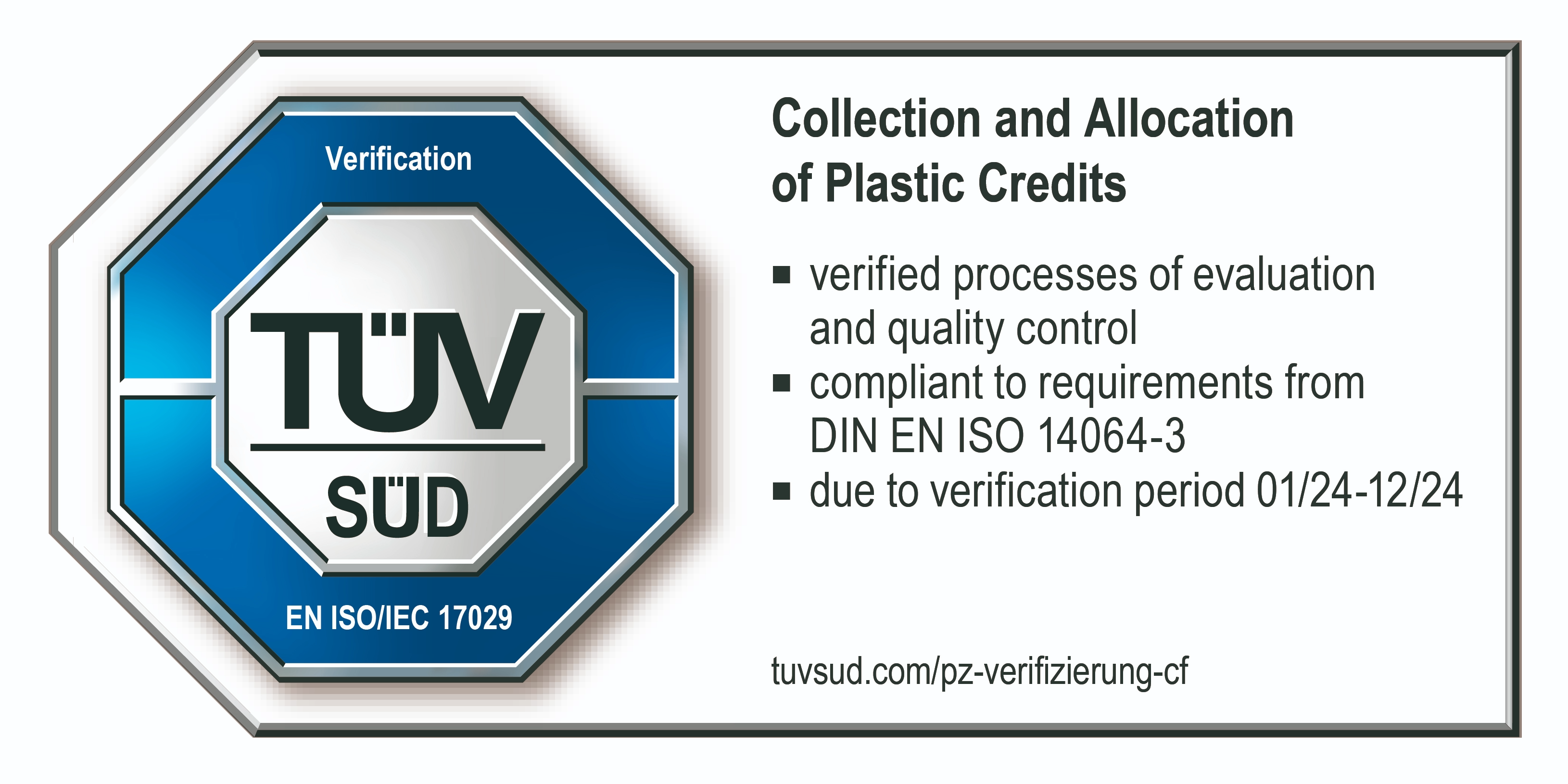
We're the first plastic credit system verified by TÜV SÜD


